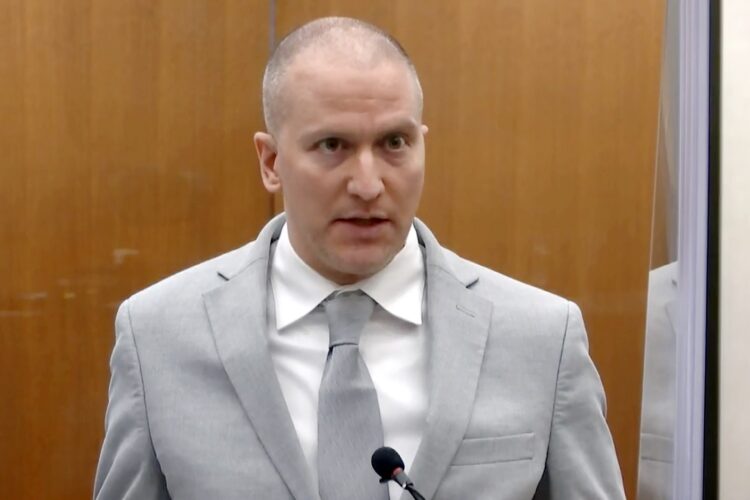Derek Chauvin, the former Minneapolis police officer indicted for the 2020 killing of George Floyd, is petitioning the Supreme Court to review his case now that the Minnesota Supreme Court has rejected his appeal. Attorneys representing Chauvin filed the Supreme Court motion on Wednesday, one month after Minnesota’s highest court denied the request for a retrial without comment. The court’s one-page order determined that the conviction would remain, echoing the ruling issued by the Minnesota Court of Appeals in May.
Chauvin is currently serving a sentence of 22.5 years for second-degree unintentional murder, third-degree murder, and second-degree manslaughter for the death of George Floyd. On May 25, 2020, Chauvin and three other Minneapolis police officers responded to a call from a convenience store alleging that Floyd was attempting to pass off a counterfeit $20 bill. Video of the arrest shows Floyd refusing to comply with the officers’ commands and complaining of difficulty breathing. An ensuing struggle led to Floyd being wrestled to the ground while handcuffed, at which point Chauvin knelt on his neck and upper back for approximately nine minutes. When medical personnel arrived, Floyd was pronounced dead.
The Hennepin Medical County Examiner ruled it a homicide caused by “cardiopulmonary arrest complicating law enforcement subdual, restraint, and neck compression,” also noting that Floyd had hypertension and coronary artery disease as well as traces of fentanyl and methamphetamine in his system. A second autopsy commissioned by the family determined the cause of death to be asphyxiation, ruling out the medical examiner’s other findings. Chauvin was convicted for his role in Floyd’s death in June 2021.
Learn the benefits of becoming a Valuetainment Member and subscribe today!
But Chauvin and his attorneys argue that the former officer was denied a fair trial when the district court refused to grant a change of venue despite what his defense calls “pervasive adverse publicity.”
“More concerning are the riots which occurred after George Floyd’s death [and] led the jurors to all express concerns for their safety in the event they acquitted Mr. Chauvin — safety concerns which were fully evidenced by surrounding the courthouse in barbed wire and National Guard troops during the trial and deploying the National Guard throughout Minneapolis prior to jury deliberations,” attorney William Morhman told the Associated Press.
The rejected change of venue, outside pressures from media and politicians, the threat of violence against jurors, and the allegation that one jury member was himself a Black Lives Matter activist have all been contributing factors in the argument for granting Chauvin a retrial, but Minnesota Attorney General Keith Ellison stated that the Minnesota court’s decision “definitively holds Chauvin accountable and closes this chapter of the murder of George Floyd.”
Chauvin now waits to hear if the Supreme Court will take up his case, but the likelihood of that happening is unknown. Although the Court has involved itself in several so-called “culture war” cases this year, it historically only hears about 150 of the 7,000 on average submitted each year, and it remains to be seen if the nine justices will find any merit to the appeal.


















Add comment